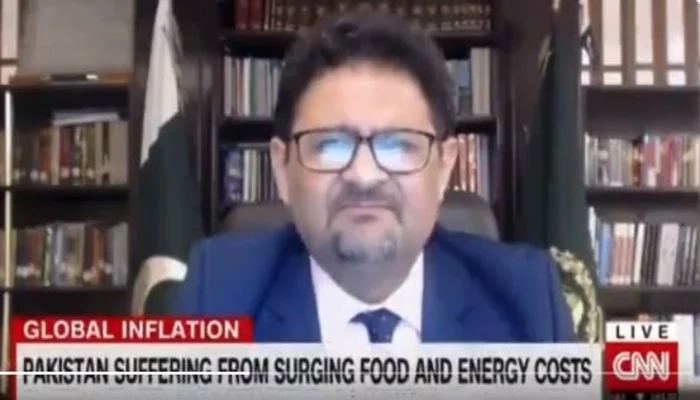- Miftah says Russia neither offered oil nor responded to former govt’s requests.
- Says incumbent govt asked Russia and Ukraine, whoever can, to sell wheat to Pakistan.
- Says impossible for Pakistani banks to open LCs or arrange to buy Russian oil at this point.
KARACHI: Finance Minister Miftah Ismail on Tuesday said that Western sanctions have made importing oil from Moscow impossible despite the Pakistani government’s request to buy wheat from Russia and Ukraine.
“Russia has not offered us any oil either. It is difficult for me to imagine buying Russian oil,” Miftah said in a conversation with CNN.
The minister said that as Russia is facing sanctions, it hasn’t responded to the previous government’s letter seeking imports. Regardless of this, the incumbent government has again asked both Moscow and Ukraine, whoever can, to export wheat to Pakistan.
“We would be happy to buy wheat from them,” he added.
Miftah further stated that Pakistan would surely consider if Russia offers oil trade at cheaper rates as there are no restrictions on buying the supply.
He said, however, it would be not possible for Pakistani banks to open LCs or arrange to buy Russian oil at this point.
Refuting former prime minister Imran Khan’s claims, Ismail said that Russia has not offered a 30% discount on oil or wheat.
“Let’s be clear. I don’t know where Khan gets these numbers from.
“Khan just makes it up as he goes along. He is the guy who was saying we (PDM) were brought in through an American conspiracy. And now he has come up with this new thing. If Russia was selling him cheap wheat and oil then why didn’t he buy it. He did not.”
He pointed out that the incumbent government is “at least” trying to initiate talks for wheat import because food is not under sanctions, unlike oil.
To a query regarding Pakistan’s negotiations with IMF, Ismail said, the government just finished a round of talks with the IMF in Doha.
“In particular, the IMF is looking to the budget I am going to present before the parliament in the early part of June. After that I am hoping we will reach a staff-level agreement,” he added
“What the IMF is looking for us to do is reverse the subsidies on oil, petrol and diesel in particular, that the previous government had given. It’s also looking for me to reverse some power sector or electricity tariff subsidies. These subsidies were introduced by the previous government in contravention with its own agreement with the IMF. I am pretty confident we should be able to sign an agreement with the fund, but there would be some austerity measures and some increase in taxation.”
He said the previous government in its waning days did a few things to violate agreements with the IMF, including giving unsustainably high subsidies on petrol and diesel and also on power.
“Khan knew it could not be sustained. And when we came to power he started going from city to city trying to rally the people and coming up with these theories, conspiracies and all the stuff and building a political pressure on us. That’s why it was difficult, but we finally took the plunge,” Ismail said.
In response to what Miftah said, former Human Rights minister and PTI leader Shireen Mazari said that its only the “fear of US” that is stopping the finance minister from buying Russian oil as there are “no sanctions” on Russian oil import.

 Latest News3 days ago
Latest News3 days ago
 Latest News2 days ago
Latest News2 days ago
 Latest News3 days ago
Latest News3 days ago
 Latest News3 days ago
Latest News3 days ago
 Latest News3 days ago
Latest News3 days ago
 Latest News3 days ago
Latest News3 days ago
 Latest News2 days ago
Latest News2 days ago
 Latest News2 days ago
Latest News2 days ago






















